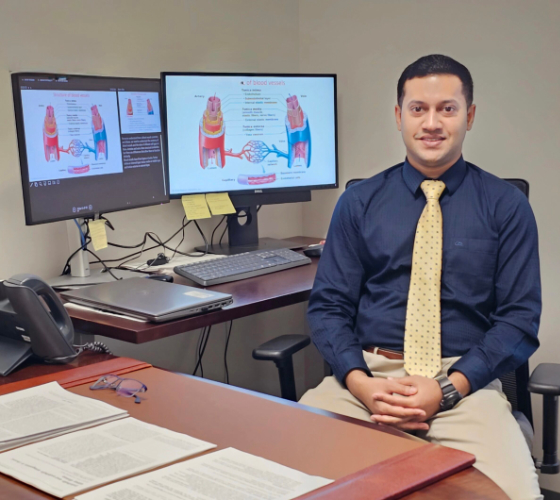Graduate and Professional Research
Graduate students at Mercer work closely with highly published, cited and funded faculty. Our state-of-the-art facilities and equipment give students in the fields of science, medicine and technology the skills and experience necessary to thrive in a professional research environment.
Students earning degrees in disciplines such as education and theology work alongside experienced faculty members to complete projects that not only increase the value of their degrees, but also make a difference in their fields of study.
The collaborative and interdisciplinary nature of our graduate research programs turn students into scholars who gain a competitive edge through their work.
Additional Projects
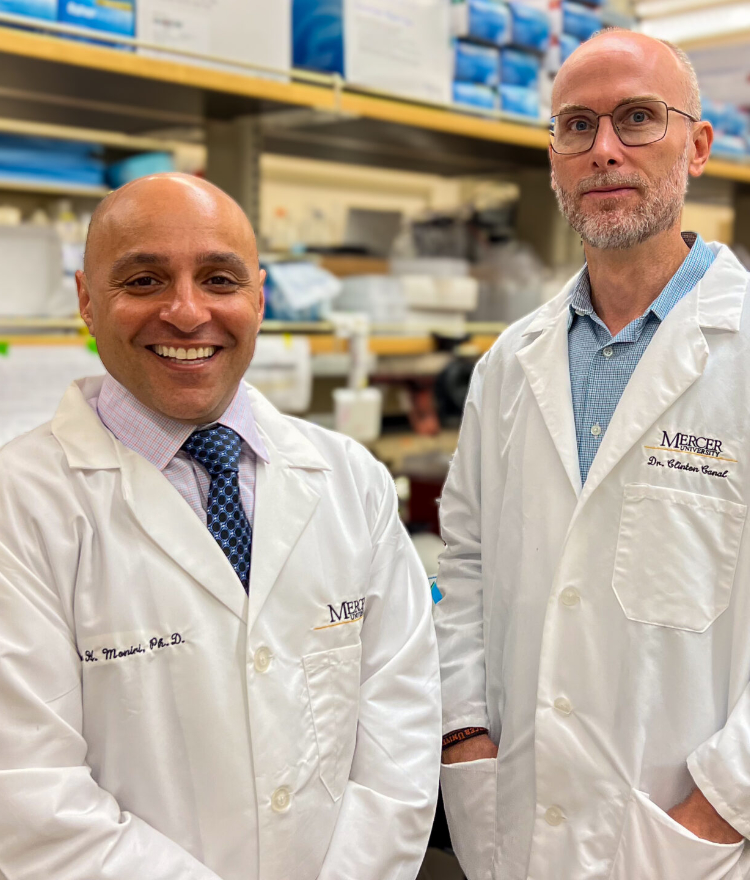
Researchers receive grant to study dangers of a drug frequently mixed with fentanyl
Mercer University College of Pharmacy professors have been awarded a $388,000 grant from the National Institutes of Health to explore how xylazine, or "tranq," affects the human body.
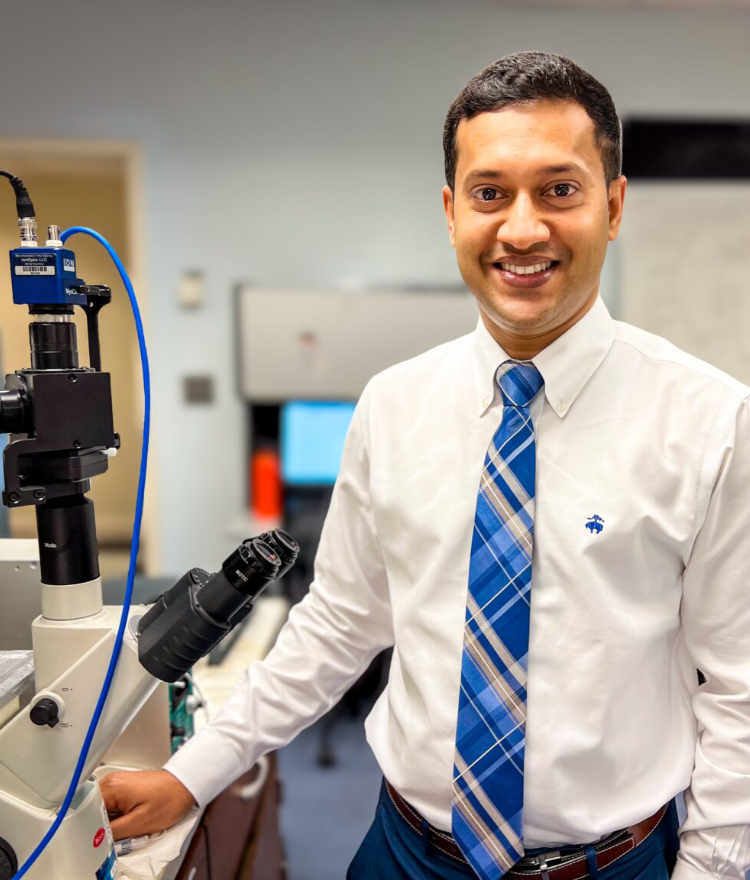
Professor researches how existing drugs can be used to lower blood pressure
Mercer University professor Dr. Raquibul Hasan received a $300,000 grant from the American Heart Association to research drugs to lower blood pressure.
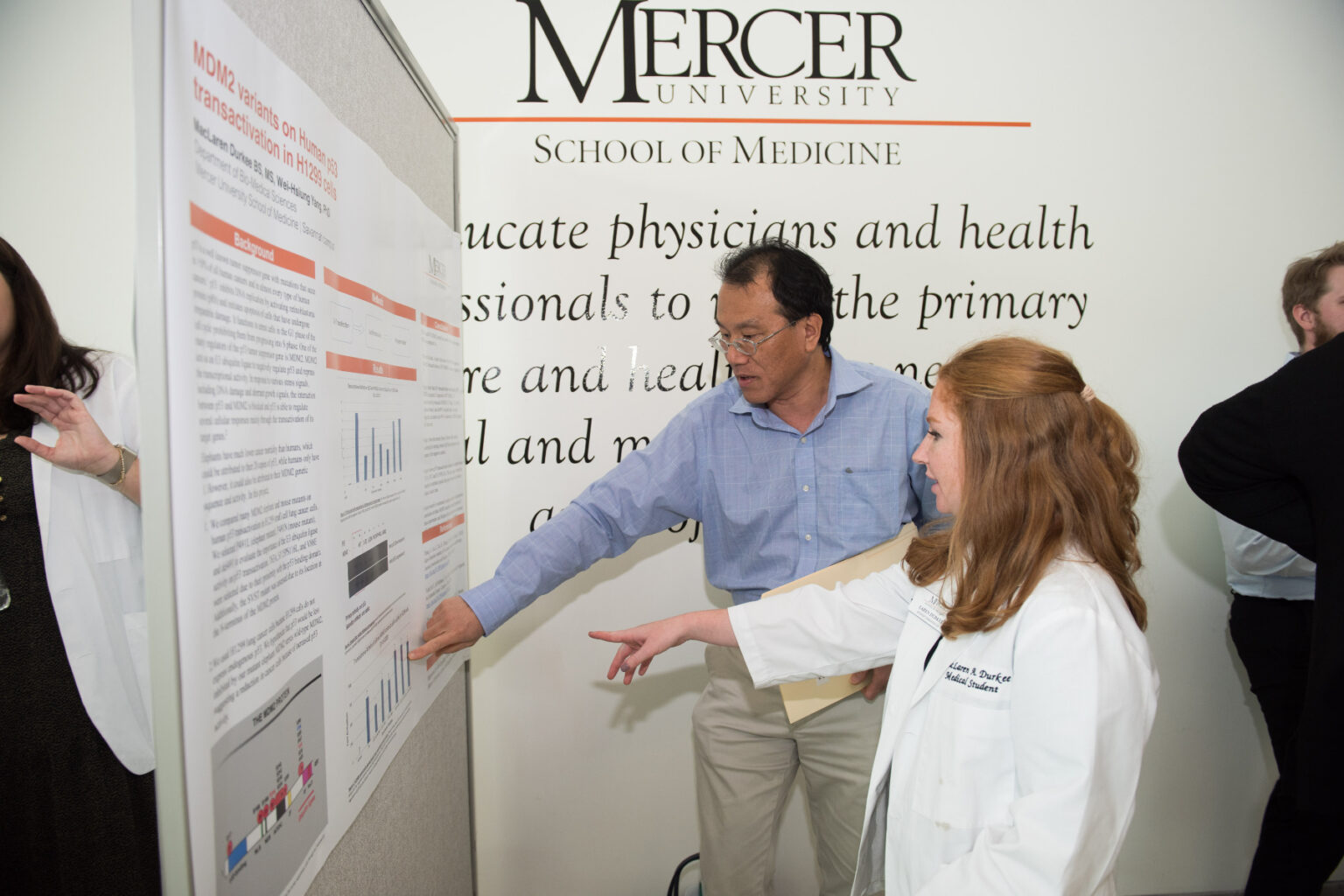
Together for a Cure: Mercer medical students contribute to cancer research
This past summer, six M.D. students worked with School of Medicine faculty on cancer research projects ranging from early detection and diagnosis to development of improved treatment options with a focus on personalized therapy.

Medical school receives grant to study effect of certain proteins on disease
A Mercer University School of Medicine professor has been awarded a $176,238 grant to study the impact of certain proteins on a variety of diseases, including cancer, neurodegenerative diseases and autoimmune disorders, which could lead to advances in screening and treatment.
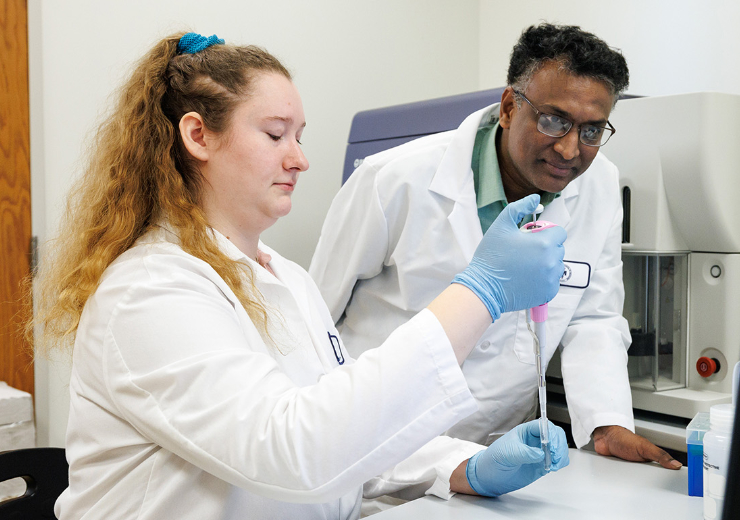
School of Medicine professor receives grant to study improved cancer treatments
A School of Medicine professor received a grant to support research to help understand how innovative cellular therapy works to reduce complications from hematopoietic stem cell transplantation.
